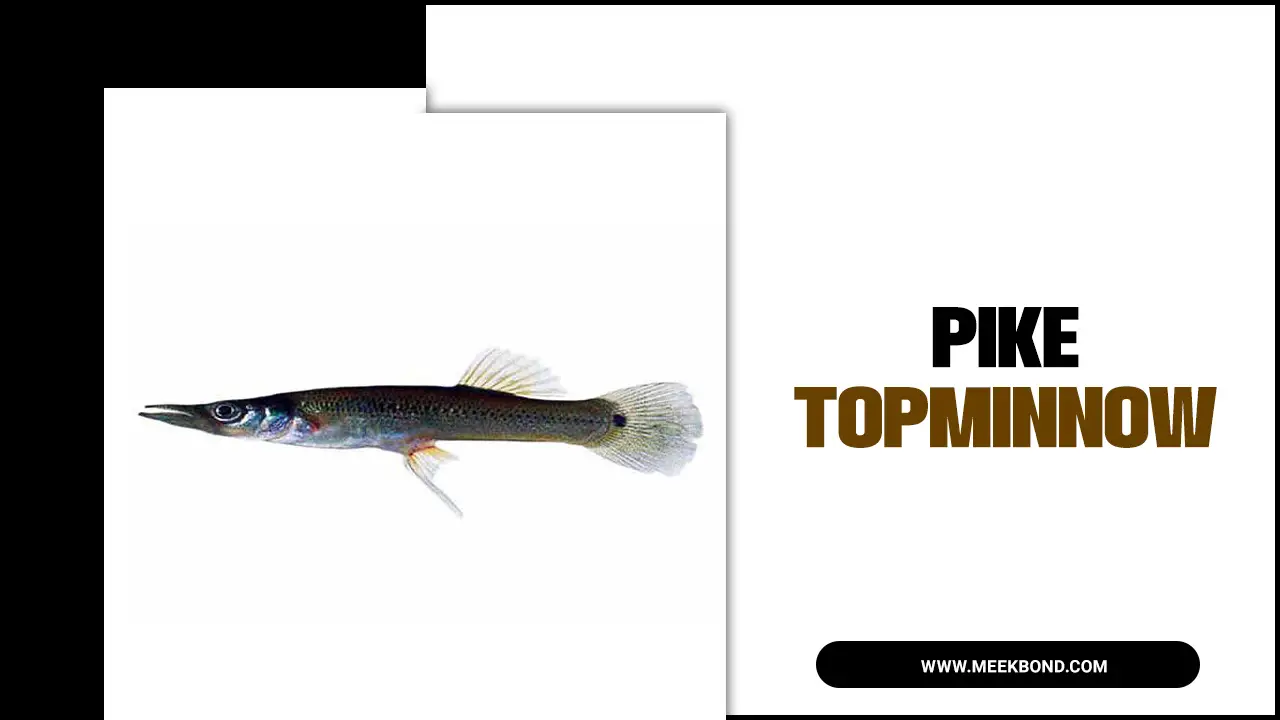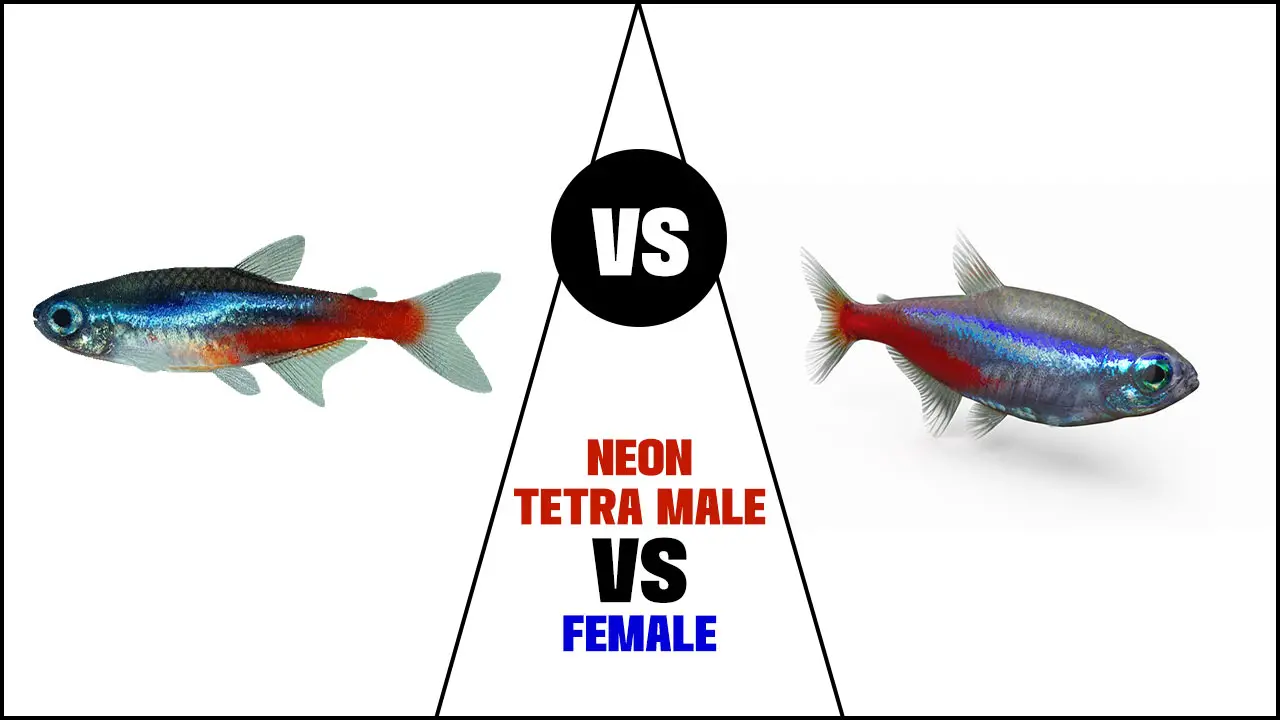As an aquarium enthusiast, it can be heartbreaking to discover that one of your fish has died. One such fish popular among aquarium owners is the suckerfish, the pleco.
These fish are known for their ability to clean the tank by eating algae and debris, making them a valuable addition to any aquarium. Here we will explore the top causes of why did my sucker fish die and ways to prevent them.
We will discuss how poor water quality, over or underfeeding, and diseases can impact your sucker fish’s health. We will also cover the role of stress in sucker fish mortality and share tips on maintaining water quality, proper diet, and disease prevention.
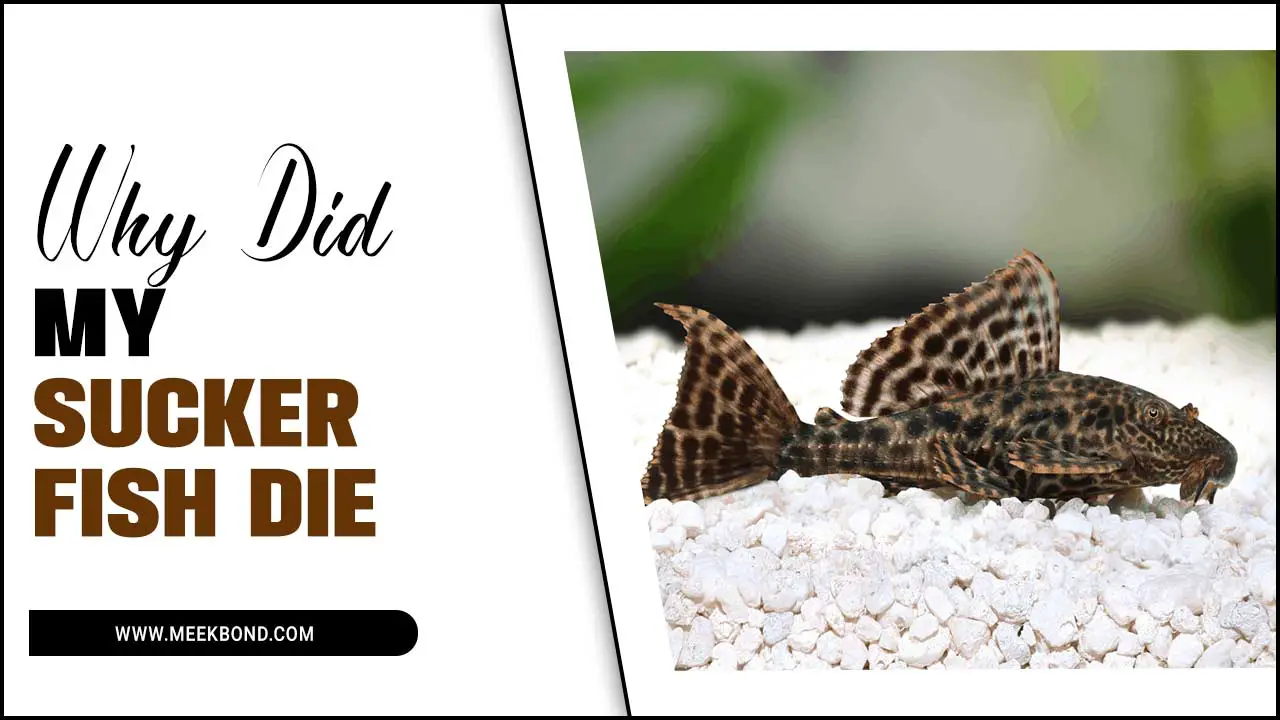
Identifying Signs For Sucker Fish Deaths
Poor water quality can harm sucker fish, as they are sensitive to toxic conditions. Overcrowding in the aquarium can lead to stress and aggressive behaviour among the fish, resulting in the death of sucker fish. Diseases like Ich and Velvet are common among suckerfish and can spread quickly if not treated promptly.
An inadequate diet can also cause malnutrition and eventually death in sucker fish. Neglecting regular maintenance, such as cleaning and water changes, can result in poor water quality and the demise of your sucker fish. By being aware of these signs, you can take the necessary steps to prevent the untimely death of your beloved pet fish.
Changes In Fins And Body
It could signify fin rot if you notice ragged or torn fins on your pleco. Changes in the colour or texture of the skin might also indicate a health issue. Watch for white patches on the body or fins, as fungal infections can cause them. By paying attention to changes in your fish’s appearance, you can prevent and address potential health issues.
Abnormalities In Movement And Activity
Sudden changes in the movement or activity of your sucker fish may indicate underlying health issues. If you notice your fish becoming lethargic or excessively hiding, it could be a sign of stress or illness.
On the other hand, abrupt hyperactivity may point to poor water quality or low oxygen levels in the aquarium. To prevent these abnormalities, it is essential to regularly observe and maintain the tank conditions, including water quality parameters such as ammonia, nitrite, and nitrate levels.
Unusual Feeding Behavior
Regarding sucker fish, unusual feeding behavior can indicate underlying health issues. Whether your fish is refusing to eat or overeat, paying attention to these changes is important. One possible cause of abnormal feeding behavior is poor water quality. Stress caused by inadequate water parameters, such as high ammonia or nitrite levels, can impact the fish’s appetite. Additionally, overfeeding can lead to digestive issues and even death in sucker fish.
5 Common Causes On Why Did My Sucker Fish Die
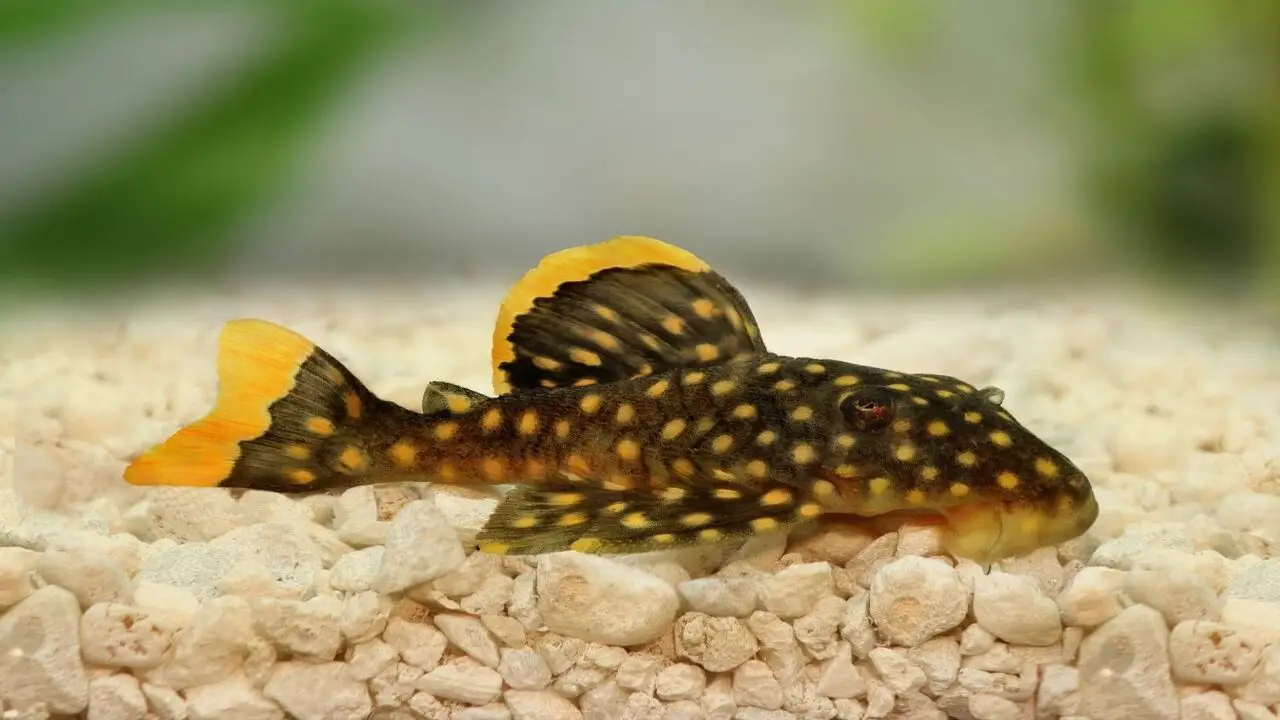
Losing a fish can be disheartening, especially when unsure of the cause. A suckerfish may die for several common reasons, and understanding these causes can help prevent future losses. If your sucker fish has passed away, it may be helpful to evaluate these potential causes and make any necessary adjustments to ensure the well-being of your remaining aquatic pets.
Additionally, consulting with a knowledgeable aquarium specialist can provide further guidance on maintaining a healthy environment for your fish. Here are five common causes of sucker fish deaths:
1.Poor Water Quality
Poor water quality is often a common culprit for the death of sucker fish. These fish are particularly sensitive to environmental changes, and water high in ammonia, nitrites, or nitrates can be extremely harmful to them. It’s important to regularly test your aquarium’s water parameters and ensure they are within the appropriate range for sucker fish.
Additionally, maintaining a clean tank by regularly cleaning the substrate and performing partial water changes can help prevent issues with water quality. If you suspect that poor water quality may have been the cause of your sucker fish’s death, it’s important to address the issue promptly to ensure the health and well-being of any remaining fish in your aquarium.
2.Inadequate Diet
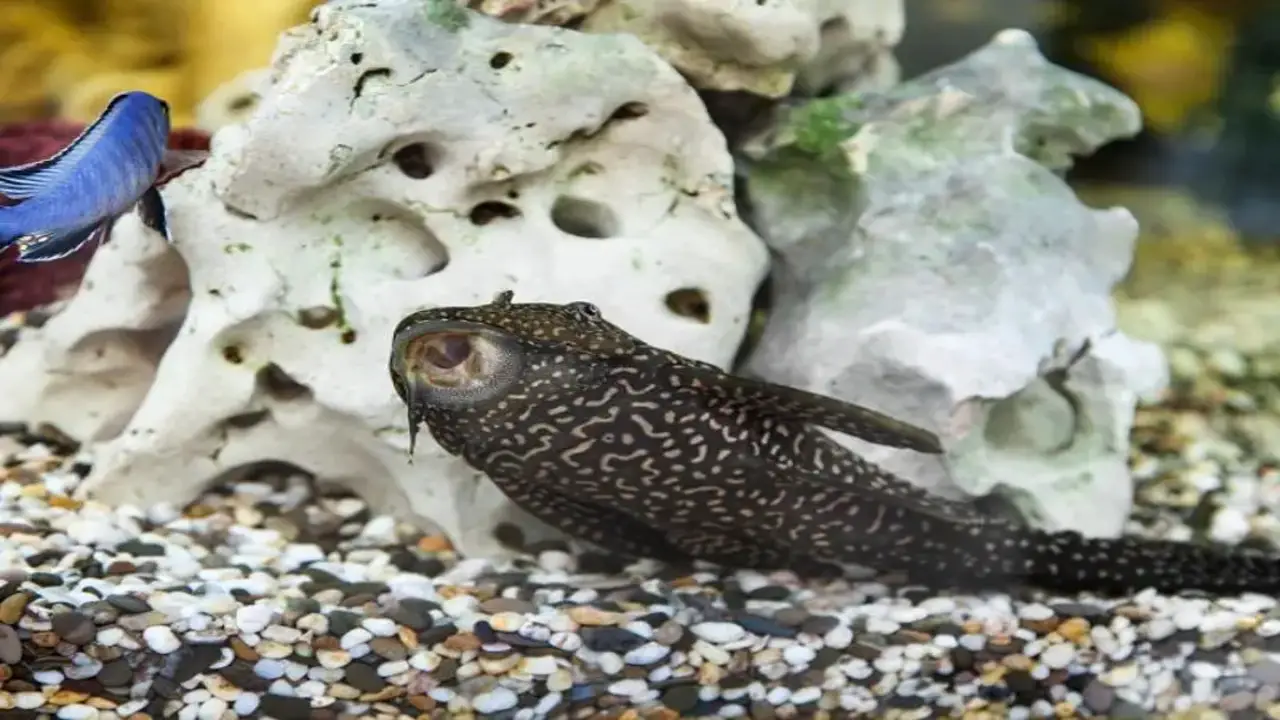
Sucker fish are herbivorous and require a diet of algae and other plant matter. If they are not provided with enough vegetation to eat, their nutritional needs may not be met, leading to health problems and, ultimately, death. It is important to ensure that your sucker fish’s diet is well-balanced and includes plenty of greens.
Additionally, providing them with supplemental foods such as spirulina tablets or blanched vegetables can help ensure they receive the necessary nutrients. Regularly monitoring their feeding habits and adjusting their diet can help prevent future issues and promote their overall health and well-being.
3.Tank Size And Overcrowding
One possible reason your sucker fish may have died is tank size and overcrowding. Suckerfish, also known as plecos, require a suitable tank size that allows them enough space to swim and thrive. If the tank is too small for the fish or there are too many fish in the tank, it can lead to stress, poor water quality, and lack of oxygen, which can be detrimental to their health.
It is important to research and provide the appropriate tank size and ensure that the number of fish in the tank matches their needs. Additionally, maintaining good water quality through regular cleaning and monitoring ammonia levels is crucial for the well-being of your fish.
4. Disease Or Infection
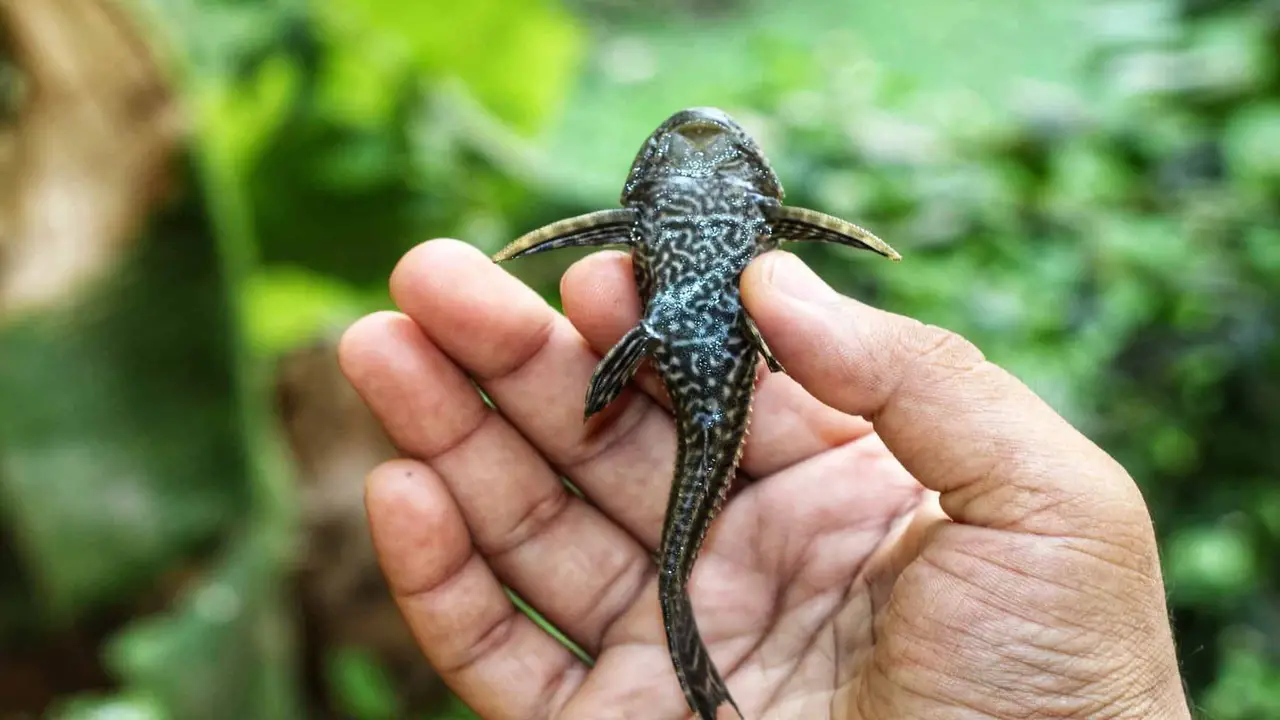
If your sucker fish has died, it may have been due to a disease or infection. Several common diseases and infections can affect sucker fish, such as fungal infections, bacterial infections, and parasitic infestations. These can be caused by poor water quality, stress, or introducing sick fish into the tank.
It is important to regularly monitor the water parameters in your aquarium and maintain good hygiene practices to prevent the spread of disease. If you suspect that your sucker fish may have died from a disease or infection, it is recommended to consult with a veterinarian or experienced aquarist for further guidance on how to prevent future occurrences.
5. Stress From Environmental Factors
Suckerfish, like any other fish, can be sensitive to environmental changes. Stress from environmental factors is a common cause of fish mortality. Sudden changes in water temperature, poor water quality, overcrowding, or improper tank conditions can all contribute to stress in sucker fish.
It is important to ensure that the tank is properly maintained and that the water parameters are within the appropriate range for the species. Regular water testing and monitoring can help identify potential issues before they become fatal for your sucker fish.
Providing a suitable hiding place and maintaining a consistent feeding schedule can also help reduce stress levels in your fish. If you are unsure about the cause of your sucker fish’s death, consulting with a veterinarian or an experienced aquarist for further guidance may be helpful.
How Can You Prevent Your Sucker Fish From Dying?
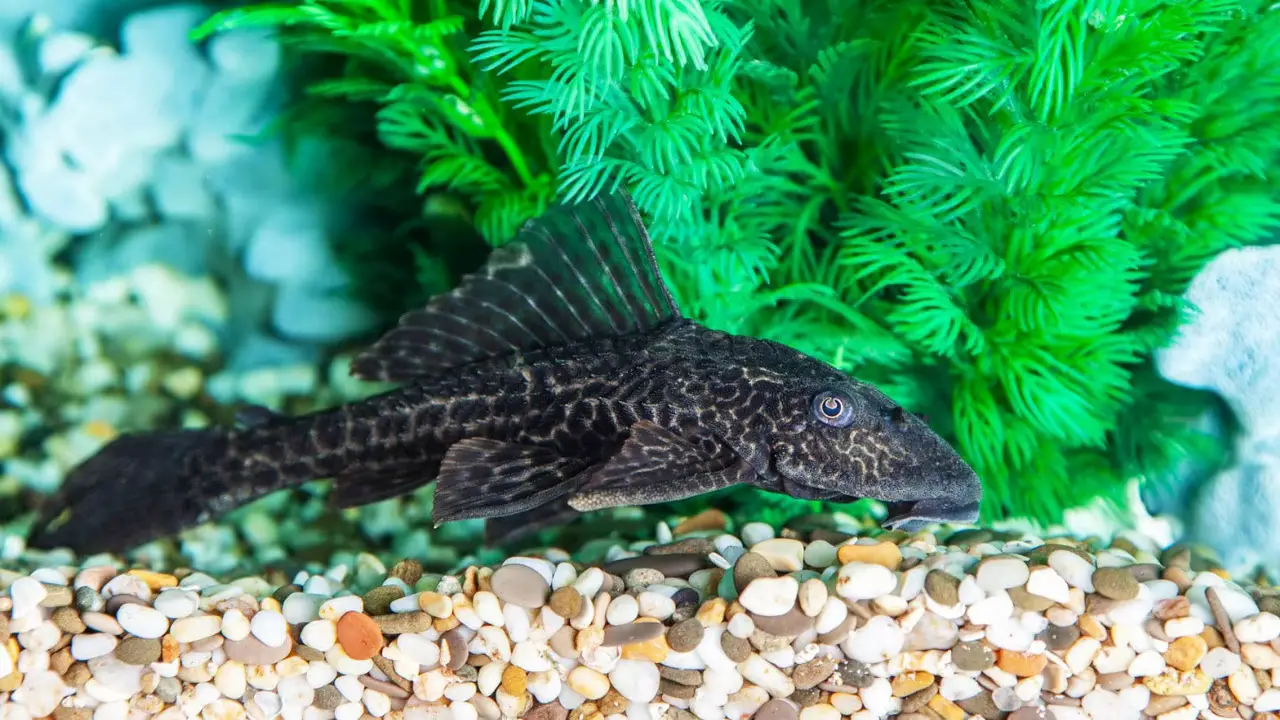
Losing a suckerfish can be disheartening, but there are steps you can take to prevent it from happening in the future. First and foremost, it’s important to ensure that your aquarium is properly set up and maintained. This includes providing a suitable environment with appropriate water parameters, such as temperature and pH levels, and ensuring the tank is clean and free from harmful substances.
Additionally, provide your sucker fish with a balanced diet that includes algae-based and other supplemental foods. Finally, pay attention to any signs of illness or stress in your fish, such as changes in behavior or appearance, and take prompt action if necessary. By taking these preventative measures, you can help ensure the health and longevity of your sucker fish.
Essential Tips For Maintaining Water Quality
Maintaining water quality is crucial for the health and well-being of sucker fish and other aquarium inhabitants. Poor water quality can lead to stress, disease, and death. Here are some essential tips to help you maintain optimal water quality in your aquarium:
- Regularly test the water parameters: Monitor the levels of ammonia, nitrite, nitrate, pH, and temperature in your aquarium. These parameters should be within a safe range for your sucker fish.
- Perform regular water changes: Regularly changing a portion of the aquarium water can help remove accumulated toxins and waste products. Aim for a 25% water change every two weeks or as recommended for your specific setup.
- Clean the filter regularly: The filter plays a vital role in removing debris and maintaining water quality. Clean or replace filter media as needed to ensure it functions properly.
- Avoid overfeeding: Overfeeding can lead to excess waste and uneaten food in the tank, contributing to poor water quality. Feed your suckerfish an appropriate amount of food and remove any uneaten portions after a few minutes.
- Avoid overcrowding: Overcrowding can strain the filtration system and increase waste buildup. Ensure your aquarium provides enough space for all the fish without compromising their health.
Following these tips and maintaining good water quality can create a healthy environment for your suckerfish and increase their chances of thriving in your aquarium.
Proper Diet And Feeding Practices For Sucker Fish
Proper feeding practices and a balanced diet are essential for the well-being of your sucker fish. These fish require a diet of algae, vegetables, and protein-rich foods to thrive. It’s important to avoid overfeeding, as it can lead to excess waste and poor water quality, which can harm your fish.
To ensure easy access to food, use sinking pellets or wafers specifically designed for sucker fish. Avoid feeding them harmful human foods like bread or crackers. Offering a varied diet will help keep your suckerfish healthy and happy.
Importance Of Regular Health Checks And Disease Prevention
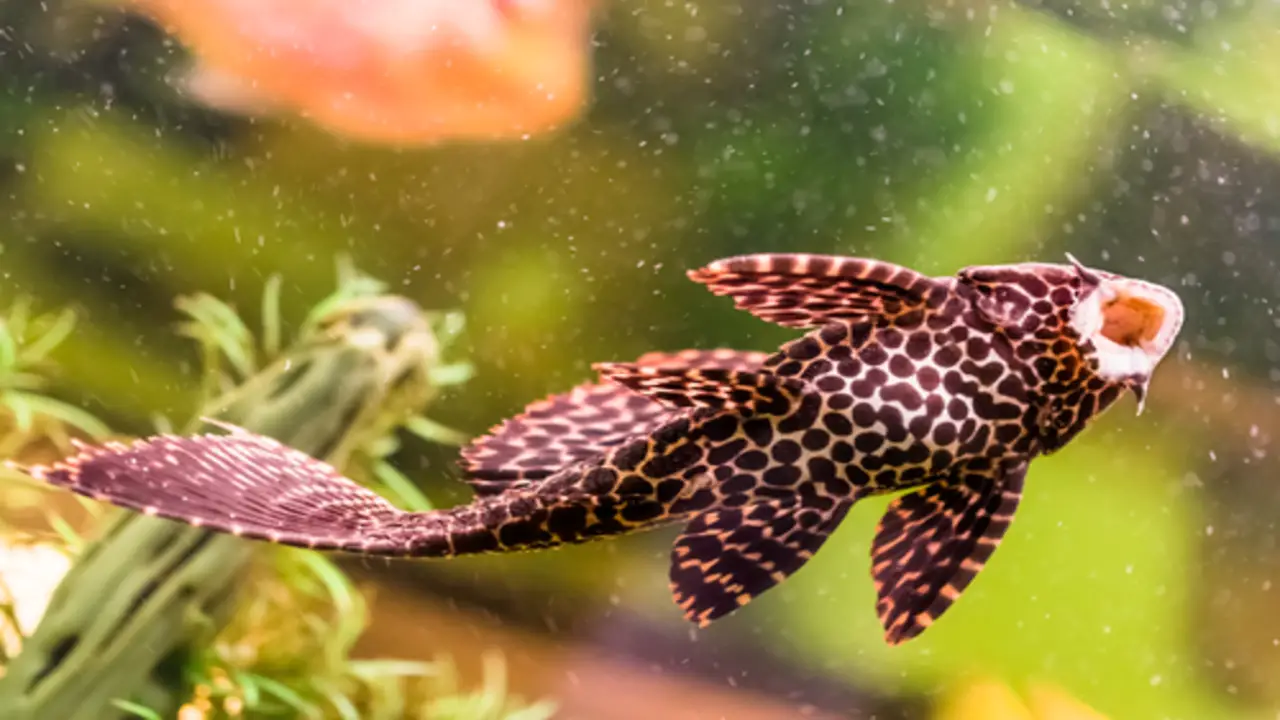
Regular health checks are crucial for maintaining the well-being of your sucker fish. By conducting these checks, you can identify potential health issues before they become fatal. Alongside health checks, it is essential to quarantine new fish arrivals to prevent the spread of disease to other aquatic creatures.
Maintaining proper water quality, pH, and temperature significantly prevent disease and reduce stress. Additionally, avoiding overcrowding your aquarium or fish tank helps maintain good water quality and lowers disease risk. Lastly, feeding your suckerfish a balanced diet ensures optimum nutrition and prevents health issues.
How To Take If Your Sucker Fish Is Showing Signs Of Illness
If your suckerfish shows signs of illness, taking immediate action is important. Start by identifying the symptoms of illness, such as lethargy, loss of appetite, or abnormal swimming behaviour. Once you’ve identified these symptoms, checking the water quality and temperature is crucial to ensure they are optimal for your sucker fish.
If necessary, make a water change and monitor the ammonia, nitrite, and nitrate levels. To prevent the spread of diseases, quarantine the sick fish in a separate tank. Provide your sucker fish with proper nutrition and a clean living environment, ensuring their dietary needs are met. If the symptoms persist or worsen, consult a fish veterinarian who can provide expert advice and guidance.
Do Sucker Fish Show Any Specific Behavior Before Dying?
It can be disheartening when a sucker fish dies, especially if you were not expecting it. While there is no specific behaviour that all sucker fish display before dying, there are some signs to look out for. These can include lethargy, loss of appetite, changes in colouration or skin condition, and abnormal swimming patterns.
However, it is important to note that these signs can also indicate other health issues, so it is best to consult a veterinarian or an experienced fishkeeper for a proper diagnosis. Additionally, ensuring that your aquarium has the right water parameters and providing a balanced diet can help prevent health issues and prolong the lifespan of your sucker fish.
Conclusion
It is important to be vigilant and observant regarding the health of your sucker fish. Any changes in their fins, body, movement, or feeding behaviour should not be ignored. Poor water quality, over or underfeeding, and diseases can all contribute to the mortality of sucker fish.
Stress is also a significant factor that can lead to their death, so providing them with a stress-free environment is crucial. To prevent your sucker fish from dying, maintain good water quality, feed them a proper diet, and regularly check their health. If your sucker fish is showing signs of illness, take immediate action. We hope you now understand why did my sucker fish die.
Frequently Asked Questions
Why Did Plecostomus Suddenly Die?
Sudden deaths in plecostomus can be caused by various factors, including poor water quality, overfeeding, disease, lack of oxygen, or sudden temperature changes. To prevent such deaths, maintain good water quality, regularly clean the tank, and treat sick fish promptly.
Why Did My Cleaner Fish Die?
Possible causes of cleaner fish death include poor water quality, stress, and disease. Maintaining ideal tank conditions by monitoring temperature, pH, and ammonia levels is crucial. Slowly introducing new fish and avoiding overcrowding can reduce stress. Regular tank cleaning and providing proper nutrition are also important for disease prevention.
What Killed My Algae Eater?
Algae eaters can meet their demise due to various factors, such as poor water quality, overfeeding, and disease. Regularly test your water to maintain the ideal pH and nutrient levels. Be mindful of feeding habits and offer a balanced diet. If you suspect illness or disease, seek veterinary advice.
How Long Do Sucker Fish Live?
Suckerfish can live up to 20 years, depending on diet, water quality, and tank size. Proper care, including regular cleanings and feeding, can extend their lifespan. Researching the specific type of sucker fish will give you an idea of their expected lifespan.
Why Did My Fish Die After A Water Change?
A sudden water change can stress fish and even cause death. The new water may have different temperatures or pH levels, which can harm certain fish species. Large water changes can lead to rapid changes in water chemistry and fish mortality. To prevent this, acclimate fish slowly and regularly monitor water parameters.

Aquarium passion is all about connecting with the aquatic life and providing education to the public on the importance of these creatures. We showcase a wide variety of marine life through our exhibits as well as working with schools to provide unique learning opportunities for students of all ages.


